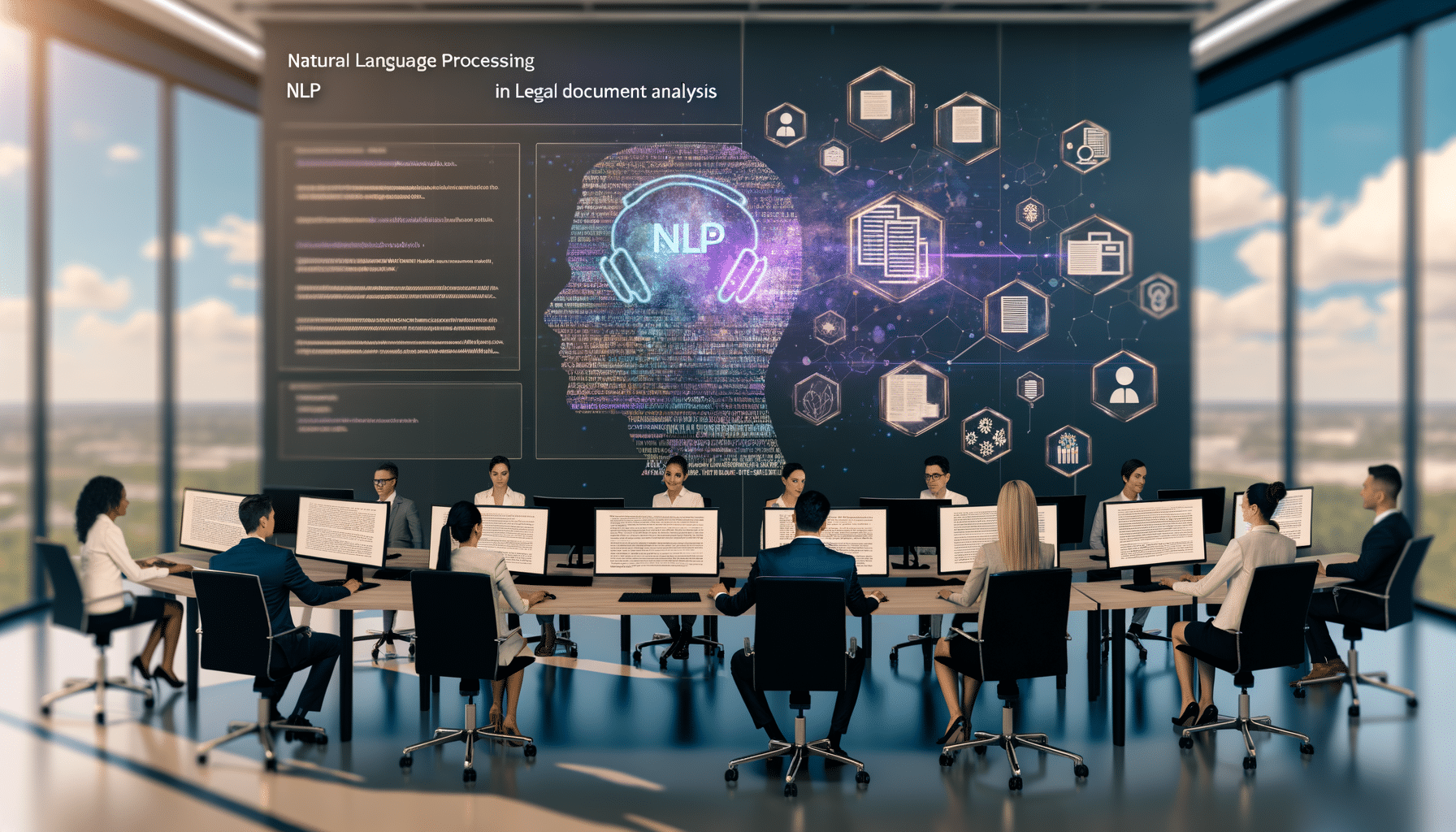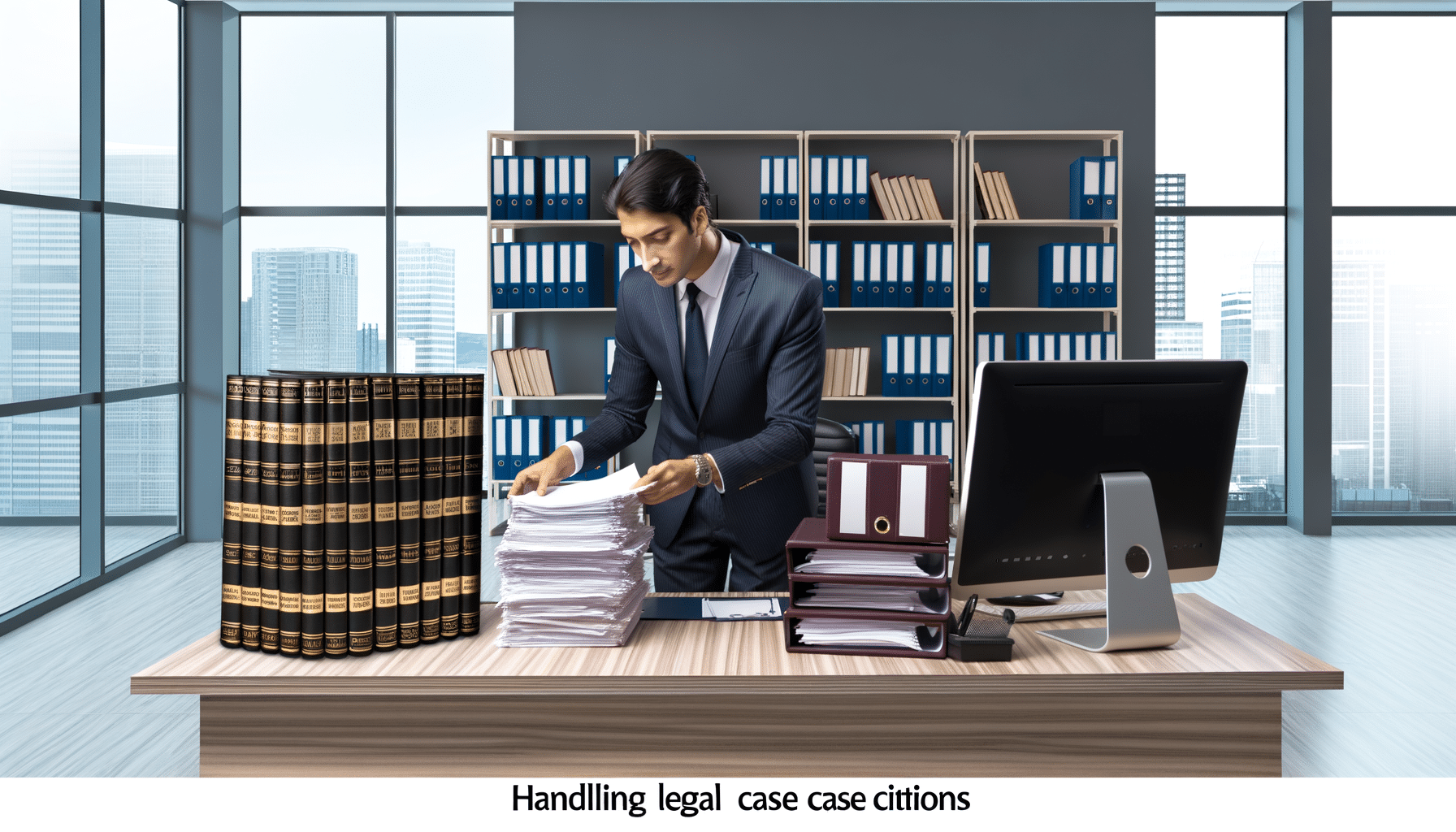- AI in Legal
- November 16, 2024
Natural Language Processing in Legal Document Analysis

Revolutionizing Legal Document Analysis with Natural Language Processing
In the fast-paced world of legal practice, where every second counts and precision is paramount, the introduction of cutting-edge technology like Natural Language Processing (NLP) is not just welcome—it’s necessary. As the founder of RecordsKeeper.AI, I have witnessed how the integration of AI capabilities, particularly NLP, has transformed the monotonous yet critical task of legal document review into a streamlined, efficient process.
The Challenge of Traditional Legal Document Review
Legal professionals are faced with mountains of paperwork, ranging from contracts and briefs to discovery documents and memoranda. The traditional approach—manual review—is not only time-consuming but also prone to human error. In our ever-evolving digital age, where compliance and accuracy are crucial, relying solely on humans to sift through vast volumes of text is increasingly impractical.
This is precisely where NLP steps in, offering a technology-driven solution to these age-old challenges. By automating the time-consuming aspects of document analysis, NLP empowers legal teams to focus on strategic decision-making rather than getting lost in paperwork.
How NLP Transforms Legal Document Analysis
Wondering how NLP accomplishes this remarkable transformation? Let me break it down for you.
1. Enhanced Information Extraction
NLP dives into legal documents, identifying key phrases, terminologies, and clauses that are crucial for case outcomes. It can quickly parse dense legal text to pinpoint relevant information, such as precedent citations or contractual obligations, ensuring that critical points never go unnoticed.
2. Streamlined Document Categorization
Our platform at RecordsKeeper.AI utilizes NLP to automate document categorization. Legal documents are meticulously sorted based on specific cases, subjects, or keywords, reducing time spent on manual organization and facilitating quicker retrieval. This automated categorization is a critical efficiency booster for legal teams that manage extensive document repositories.
3. AI-Powered Search Functionality
Searching through digital archives becomes a breeze with NLP’s ability to understand context and semantic nuances. Unlike traditional keyword searches, NLP allows for natural language queries, enabling legal professionals to find relevant documents without the hassle of combing through irrelevant results. Imagine finding those crucial documents in seconds rather than hours.
4. Improved Compliance and Risk Management
With legal statutes and regulations being extremely dynamic, staying in compliance is a constant challenge. NLP can help by automatically analyzing legal documents to ensure adherence to compliance regulations such as GDPR, HIPAA, and more. It also flags areas where compliance might be at risk, allowing proactive measures to mitigate potential issues.
Benefits of Adopting NLP in Legal Practices
- Increases Efficiency: By handling document analysis at unprecedented speeds, NLP frees up time for legal professionals to focus on strategic tasks.
- Reduces Costs: Automated processes mean fewer hours spent on manual review, translating into cost savings for law firms and their clients.
- Mitigates Risk: NLP minimizes the risk of oversight or error in document analysis, ensuring accurate and thorough reviews.
- Supports Decision-Making: By surfacing critical data quicker and more reliably, NLP aids lawyers in making informed, timely decisions.
Our Vision at RecordsKeeper.AI
At RecordsKeeper.AI, we are at the forefront of this technological revolution. Our platform is designed to integrate seamlessly with existing legal workflows, enriching them with the power of NLP. By providing legal professionals with tools for better document management, we aim to shift the focus from laborious tasks to strategic thinking and client engagement.
Conclusion: Embrace the Future of Legal Document Analysis
The shift from manual to AI-augmented legal document review is not just an enhancement—it’s a leap forward. As legal professionals, adopting such technology is essential to remain competitive and responsive in an industry that thrives on accuracy and efficiency.
I invite you to explore how RecordsKeeper.AI can transform your approach to document management. Join us on this journey toward a more efficient, compliant, and secure future. Feel free to reach out, ask questions, or follow my insights across platforms to remain at the cutting edge of technological advancements in the legal field.
Together, let’s redefine what’s possible in legal document analysis.
Toshendra Sharma is the visionary founder and CEO of RecordsKeeper.AI, spearheading the fusion of AI and blockchain to redefine enterprise record management. With a groundbreaking approach to solving complex business challenges, Toshendra combines deep expertise in blockchain and artificial intelligence with an acute understanding of enterprise compliance and security needs.
Related Posts


Archives
- January 2025
- December 2024
- November 2024
- October 2024
- September 2024
- August 2024
- July 2024
- June 2024
- May 2024
- April 2024
- March 2024
- February 2024
- January 2024
- December 2023
- November 2023
- October 2023
- September 2023
- August 2023
- July 2023
- June 2023
- May 2023
- April 2023
- March 2023
- February 2023
- January 2023
- December 2022
- November 2022
- October 2022
- September 2022
Want to get more content like this?
Signup to directly get this type of content to your inbox!!
Latest Post
Document Control for Equipment Maintenance
- January 20, 2025
Managing Records for Multiple Clients
- January 19, 2025
Handling Conference Documentation
- January 18, 2025
Setting Up Department Record Reviews
- January 17, 2025





